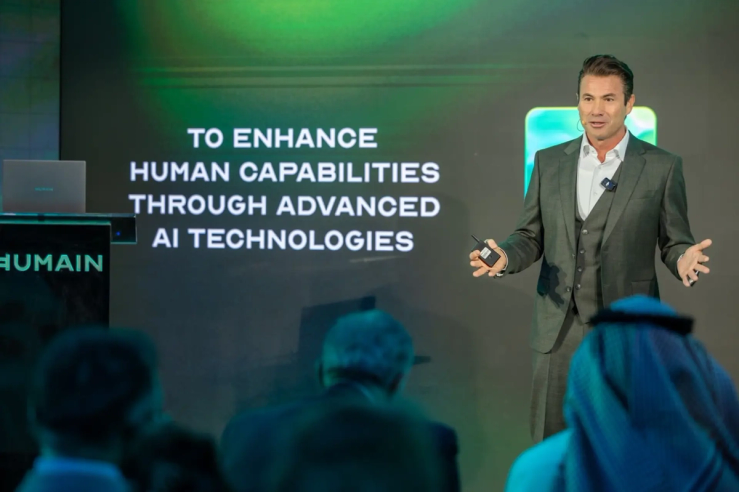Jon’s view
The announcement this month that the Public Investment Fund’s artificial intelligence unit HUMAIN would work with chipmaker Groq to host OpenAI’s latest models on Saudi Arabia’s new sovereign data centers did not attract much media attention. But we may come to see this as a turning point in the kingdom’s efforts to diversify its economy to the new oil, data.
The announcement comes as rumors swirl about the kingdom making a direct investment of $40 billion in OpenAI, and the unveiling of a new regulatory framework designed to encourage foreign technology investment while establishing Saudi sovereignty over its data.
Taken together, these steps firmly establish Saudi Arabia’s ambition to become a global AI hub, competing with the US and China for leadership in what many describe as the Fourth Industrial Revolution.
With the growing importance of data protection, security, and privacy, the physical location of AI data centers has become a core business and legal issue.
By creating a global data center within its own borders, Saudi Arabia is literally drawing a line in the sand, broadcasting its intention to control the legal, security, and regulatory framework for the data produced in the kingdom. Instead of Saudi businesses and institutions transferring their data abroad, their information will be stored in the new HUMAIN hub and serve as the basis for the kingdom’s own AI development.
The kingdom isn’t just buying hardware and changing regulations: It has introduced new Application Programming Interfaces (APIs) to create greater competition and inclusion for fintech firms to communicate and exchange data. Legal reforms include simplified registration for foreign investors and a new companies law accelerating the process to create a tech startup.
The proposed strategic Saudi investment in OpenAI, meanwhile, indicates the kingdom is departing from its traditional pattern of investing through funds. Saudi Arabia is assuming more risk, but it also provides the advantage of being able to influence the development of the company to suit its own needs.
In the race for data center superiority, the Saudis have significant advantages, including a ready pile of cash from oil revenue that can be deployed quickly and efficiently. Under Saudi Vision 2030, the kingdom has a clear roadmap, and its ambition is matched by its commitment to creating physical infrastructure and business-friendly regulation.
If the Saudis can continue to take this systemic, holistic approach, with smart bets on key areas where technology can solve real and urgent problems — including cybersecurity, power, food, and environment — they will join the ranks of state leaders in global technology.
Jon Medved is the founder and CEO of OurCrowd, a venture investment platform based in Jerusalem. Follow him on LinkedIn and X or subscribe to his weekly newsletter.
Notable
- HUMAIN has sold out capacity at all its existing and planned data centers. With most customers abroad, it boosts Saudi Arabia’s plan to leverage cheap energy and land to become a low-cost hub for AI processing, writes Semafor’s Matthew Martin.
- Saudi Arabia’s AI ambitions risk mirroring China’s data center boom — where nearly 80% of computing power goes unused — unless it can attract the talent and software needed to develop homegrown AI applications, Bloomberg columnist Parmy Olson writes.


